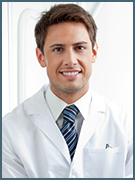
Hypersalivation is an excess of saliva in the mouth, which may spill out over the lip.
Depending on the cause, hypersalivation can either be constant or intermittent. It can also be temporary or chronic. Often, it can cause a person social anxiety.
What is hypersalivation?
Hypersalivation is not a disease but usually a symptom of another underlying condition. These other factors can range from easily treated and common causes to rare diseases.
Saliva is a clear liquid produced by the salivary glands in the mouth. It moistens food and aids swallowing. It also contains enzymes that help with digestion.
Saliva can help to heal wounds and remove germs from the mouth, as well as prevent dryness and act as a barrier against irritants and toxins.
On average, a healthy person produces between 0.75 and 1.5 liters of saliva each day. Saliva production peaks when a person is eating and is at its lowest during sleep.
Too much saliva can cause problems with talking and eating, along with chapped lips and skin infections. Hypersalivation and drooling can also cause social anxiety and diminished self-esteem.
Causes

There are many potential causes of hypersalivation. It can be a complication from wearing dentures, or having poor mouth co-ordination.
Hypersalivation can be the result of:
- excessive saliva production
- an inability to effectively swallow or clear saliva from the mouth
- difficulty keeping the mouth closed
Causes of excessive saliva production, leading to hypersalivation, include:
- morning sickness or nausea during pregnancy
- sinus, throat, or peritonsillar infections
- poisonous spider bites, reptile venom, and poisonous mushrooms
- false teeth
- ulcers, inflammation, or pain in the mouth
- poor oral hygiene
- severe infections such as rabies or tuberculosis
- severe or sudden pain
- regurgitation of saliva during heartburn
- jaw fractures or dislocation
Difficulty swallowing or clearing saliva from the mouth can be caused by or associated with some underlying conditions, including Down syndrome, autism, ALS, stroke, and Parkinson’s disease. If a person also has a sensory dysfunction, they may not always realize that they are drooling.
Causes of an inability to keep the mouth closed, which can result in drooling, include poor neuromuscular control of the muscles around the mouth. Cerebral palsy is an example of such a condition.
Difficulty keeping saliva in the mouth can also be due to:
- poor head and lip control
- a constantly open mouth
- impaired tactile sensation
- an enlarged tongue or poor tongue mobility
- poor teeth alignment
- nasal blockage
Hypersalivation can also result from non-medical conditions, such as seeing, smelling, or tasting food, or even just thinking about food. It can also be caused by chewing gum or by feelings of excitement and anxiety.
Symptoms
Symptoms of hypersalivation include drooling, spitting, and excessive swallowing.
Other related symptoms include:
- chapped lips
- softening and damage to the skin around the mouth
- infection of the skin around the mouth
- bad breath
- dehydration
- speech disturbance
- pneumonia
- poor sense of taste
Hypersalivation and drooling may also cause psychological complications and social anxiety, as well impact their ability to eat or speak.
People who experience hypersalivation are more likely to inhale saliva, food, or fluids into their lungs, which can lead to aspiration pneumonia. This may happen when the gagging and coughing reflexes are impaired.
Diagnosis
The aim of diagnosing hypersalivation is to pinpoint the underlying cause and then to recommend the best available treatment for each affected person. A diagnosis is important, as some of the potential causes of hypersalivation have serious complications.
To diagnose hypersalivation, a doctor may include an examination of the following:
- the mouth, teeth, and surrounding skin
- tongue control, swallowing ability, and jaw stability
- tonsils and nasal airways
- alertness and emotional state
- hydration, hunger, and head posture
A doctor will usually consider it necessary to assess other criteria, including:
- existing medical conditions and ongoing medication
- how and when hypersalivation occurs
- the amount of extra saliva produced
- whether or not the problem is constant or intermittent
- any adverse effects on daily life
Once the cause of hypersalivation is established, a doctor may take the following factors into account when recommending a treatment:
- severity and complications
- age and mental status
- whether hypersalivation is chronic or temporary
- associated neurological conditions
- the possibility of improvement
Treatment and management

Speech therapy and techniques for improved tongue and lip control may help treat hypersalivation.
Dealing with hypersalivation is about treating the underlying condition that is causing it, as well as managing the immediate effects of excess saliva in the mouth.
Depending on the cause, the treatment can include certain types of therapies, medications, and home remedies. In extreme cases, surgery may be considered.
Therapy: This can include behavioral modification and speech therapy. People experiencing hypersalivation may benefit from help with posture and head control. They can also learn techniques for lip closure, better tongue control, and swallowing.
Medication: The aim of medication for hypersalivation is to reduce salvia production. Anticholinergic medication may be used, although it has a range of side effects, including drowsiness, restlessness, irritability, urinary retention, constipation, and flushing. Treatment can also include a beta-blocker or botulinum toxin (Botox).
Home remedies: Drinking plenty of water can reduce saliva production. Tooth-brushing and rinsing with mouthwash can also temporarily dry out the mouth.
The successful management of hypersalivation and the resulting drooling can improve a person’s confidence and self-esteem.
Outlook
Some causes of hypersalivation may clear up over time without treatment. Such causes include pregnancy, anxiety, and minor injuries.
Other causes can pose more serious medical challenges. This category includes neurological causes and nerve disorders.
If chronic conditions are the cause, treatment may include lifelong management of a person’s hypersalivation.
Let’s block ads! (Why?)





